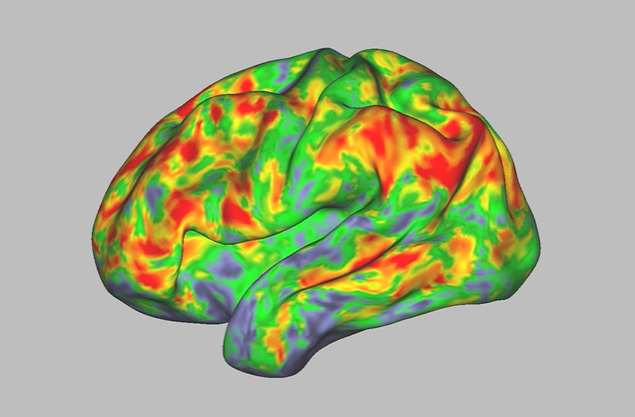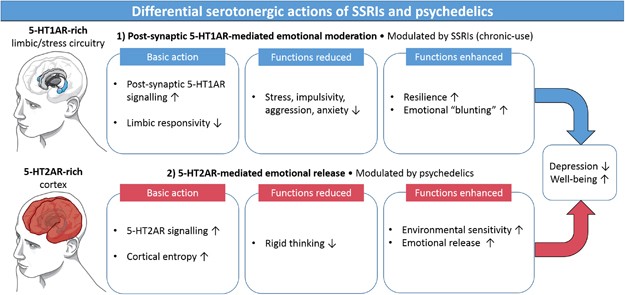Reach Out to Golden Psycho for Insights on Diverse copyright Categories
Recognizing Exactly How copyright Aspects Can Add To Individual Growth and Healing
The integration of copyright components into healing practices has actually garnered raising focus for their prospective to promote personal growth and healing. By advertising improved emotional visibility and cognitive adaptability, these substances might allow people to challenge deeply rooted traumas and reshape their understanding of self. Nonetheless, the devices underlying these transformative experiences remain complex and warrant mindful evaluation. As we discover the junction of neuroscience and individual advancement, a concern arises: what particular elements contribute to the effectiveness of psychedelics in fostering lasting adjustment? The solutions might hold profound ramifications for both therapy and personal health.
The Scientific Research of Psychedelics
The scientific neighborhood has increasingly transformed its attention to the intricate systems of psychedelics, exposing their profound effect on the human mind. Study shows that psychedelics, such as psilocybin and LSD, largely interact with serotonin receptors, specifically the 5-HT2A receptor. This communication appears to facilitate improved neural connection, promoting communication between formerly detached brain areas.
Neuroimaging research studies have demonstrated transformed brain task patterns intoxicated of psychedelics, typically identified by a state of raised synaptic plasticity. This heightened plasticity is thought to play a critical function in the therapeutic potential of these compounds, enabling people to reprocess stressful memories or embedded thought patterns.
Furthermore, the so-called "default mode network" (DMN), associated with self-referential thought and vanity, shows decreased task during copyright experiences. This decrease is thought to contribute to sensations of interconnectedness and vanity dissolution, which can foster mental healing.
As the body of proof expands, understanding the underlying neuroscience of psychedelics may lead the method for novel therapeutic treatments for mental health and wellness problems such as anxiousness, ptsd, and depression, sustaining a standard change in emotional therapy methods.
Individual Development With Experiences
Through transformative experiences, individuals can harness the potential of psychedelics for personal development. These compounds commonly assist in profound self-contemplation, permitting customers to confront and show upon their personal ideas, values, and life choices. Such encounters can bring about enhanced self-awareness, as individuals may obtain insights right into their inspirations and actions that were formerly obscured by the intricacies of day-to-day live.
In addition, the enhanced emotional visibility frequently related to copyright experiences promotes a greater understanding of one's identity and function. By breaking down psychological barriers and boosting cognitive flexibility, psychedelics can urge individuals to explore new viewpoints, consequently fostering imagination and analytical capabilities. This expedition typically leads to a re-evaluation of life goals, ultimately guiding people towards even more fulfilling courses.
Furthermore, the shared experiences promoted by group settings can enhance social bonds and promote a feeling of connectedness, enhancing the concept that individual growth is not entirely a specific venture. In summary, with the lens of copyright experiences, people can get started on a trip of self-discovery, paving the way for substantial individual development and makeover.
Healing Trauma and Emotional Strength
Using psychedelics as a healing device has shown guarantee in recovery injury and fostering emotional durability. Research study shows that compounds such as copyright, ayahuasca, and psilocybin can help with extensive psychological experiences, permitting individuals to challenge and process injury in a encouraging and safe setting. These experiences can bring about substantial decreases in symptoms of trauma (PTSD) and other trauma-related problems.
Psychedelics often advertise neuroplasticity, making it possible for the brain to create new links and pathways. This adaptability is crucial in improving adverse idea patterns and psychological actions rooted in past trauma. By reviewing stressful memories in a modified state of awareness, people may acquire new perspectives, resulting in healing and psychological assimilation.
 Furthermore, the reflective nature of copyright experiences can improve self-awareness, resulting in better psychological strength. Bonuses Participants usually report enhanced coping methods and an increased feeling of link to themselves and others. This interconnectedness can promote a supportive area, further aiding in the recovery process. Overall, the assimilation of psychedelics right into therapeutic techniques provides an encouraging method for those seeking to conquer injury and build long lasting psychological durability.
Furthermore, the reflective nature of copyright experiences can improve self-awareness, resulting in better psychological strength. Bonuses Participants usually report enhanced coping methods and an increased feeling of link to themselves and others. This interconnectedness can promote a supportive area, further aiding in the recovery process. Overall, the assimilation of psychedelics right into therapeutic techniques provides an encouraging method for those seeking to conquer injury and build long lasting psychological durability. Stories of Transformation
How do personal stories shape our understanding of transformation via psychedelics? Stories of transformation usually serve as powerful endorsements, revealing the extensive impact psychedelics can carry specific lives. These narratives supply understanding right into the experiences that catalyze personal growth, healing, and changes in viewpoint.
People regularly report encounters with useful source deep-rooted emotions, unresolved traumas, and existential dilemmas during their copyright experiences. Such moments can bring about substantial advancements, fostering a restored feeling of self and purpose. For instance, an individual may state exactly how a guided psilocybin session permitted them to challenge uncomfortable memories, inevitably bring about a transformative acceptance of their past.
 In addition, these tales highlight the variety of copyright experiences, illustrating that improvement is not a one-size-fits-all process. Some people experience extensive spiritual awakenings, while others discover quality in their relationships or career paths.
In addition, these tales highlight the variety of copyright experiences, illustrating that improvement is not a one-size-fits-all process. Some people experience extensive spiritual awakenings, while others discover quality in their relationships or career paths.Collectively, these narratives add to a wider understanding of the therapeutic possibility of psychedelics, highlighting the significance of integration, intention, and context. By sharing their trips, people not just verify their experiences yet also influence others to explore the transformative possibilities that psychedelics can use.
Integrating Lessons Into Life
The understandings obtained from copyright experiences often necessitate mindful assimilation into day-to-day life to maximize their transformative capacity. This process involves equating extensive understandings into actionable steps that can improve overall health and foster individual development. Effective assimilation requires representation on the lessons learned during the experience, recognizing essential themes, and establishing how these can be put on everyday routines.
One approach to combination is journaling, which allows individuals to express their ideas and feelings, facilitating a much deeper understanding of their experiences. Setting particular, possible goals based upon these understandings can also aid in keeping emphasis and motivation. Furthermore, developing an encouraging area, whether with colleagues or expert assistance, can provide crucial encouragement and accountability.
 Mindfulness techniques, such as meditation or yoga exercise, can improve the assimilation procedure by advertising present-moment understanding and psychological law. By cultivating a consistent regimen that integrates these techniques, people can better navigate obstacles and strengthen the lessons discovered. Eventually, the successful combination of copyright understandings right into day-to-day life can lead to sustained personal improvement, boosted psychological resilience, and a deeper click here to find out more connection to oneself and others.
Mindfulness techniques, such as meditation or yoga exercise, can improve the assimilation procedure by advertising present-moment understanding and psychological law. By cultivating a consistent regimen that integrates these techniques, people can better navigate obstacles and strengthen the lessons discovered. Eventually, the successful combination of copyright understandings right into day-to-day life can lead to sustained personal improvement, boosted psychological resilience, and a deeper click here to find out more connection to oneself and others.Verdict
To conclude, the exploration of copyright aspects exposes their substantial potential in promoting individual development and assisting in recovery. By boosting neural connectivity and promoting psychological openness, these materials allow individuals to challenge injury and establish much healthier coping techniques. The transformative experiences reported by lots of highlight the importance of assimilation into day-to-day live, ultimately resulting in boosted psychological resilience and a more extensive understanding of identity and life objectives. Continued study and cautious application might further light up these benefits.
Through transformative experiences, people can harness the possibility of psychedelics for personal development.Additionally, the heightened emotional openness frequently linked with copyright experiences cultivates a greater understanding of one's identification and objective.Additionally, the reflective nature of copyright experiences can improve self-awareness, leading to higher psychological durability.People often report encounters with deep-rooted feelings, unsettled injuries, and existential dilemmas during their copyright experiences.The understandings got from copyright experiences often demand careful combination right into everyday life to maximize their transformative capacity.